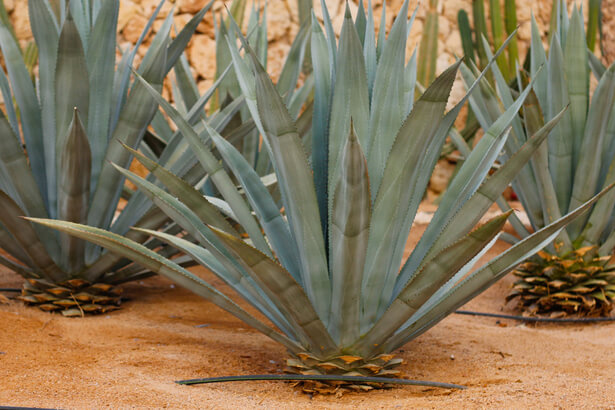Agave Nectar: Is it Really Better Than Sugar? 🍯
Agave nectar is often touted as a healthy alternative to sugar. But is it really? Discover its pros and cons, and make the right choice for your health!
HEALTHBLOG-LIST
10/24/20242 min read


Agave nectar, extracted from the blue agave plant, has gained popularity in recent years as a natural alternative to refined white sugar. But is it really better for your health? That's the question many people are asking, and we're going to answer it together, in all transparency.
In short:
Agave nectar has a lower glycemic index (GI) than sugar, meaning it causes a slower rise in blood sugar levels.
It is sweeter than sugar, so you can use less to achieve the same taste.
Agave nectar is high in fructose, which can be problematic for liver health if consumed in excess.
It is important to consume agave nectar in moderation, like any other sweetener.
Table of Contents:
The origin of agave nectar
The benefits of agave nectar
The drawbacks of agave nectar
Agave nectar vs sugar: which to choose?
FAQ
Conclusion
1. The Origin of Agave Nectar 🌵
Agave nectar is produced from the sap of the blue agave plant, native to Mexico. Traditionally used in Mexico, it has conquered the world thanks to its neutral taste and liquid texture, which makes it easy to use in drinks and desserts.
2. The Benefits of Agave Nectar 👍
Low glycemic index: One of the main benefits of agave nectar is its low GI. This means it is digested more slowly than sugar, thus avoiding blood sugar spikes. This is an important point for people with diabetes or wishing to control their weight.
High sweetness: Agave nectar is sweeter than white sugar. You can therefore use less to obtain the same sweet intensity, which can be interesting to reduce calorie intake.
Neutral taste: Its taste is quite neutral, which allows it to be easily integrated into many preparations without altering their flavor.
3. The Drawbacks of Agave Nectar 👎
High in fructose: Agave nectar is largely composed of fructose, a type of sugar that is metabolized differently by the liver. Excessive fructose consumption can contribute to health problems such as insulin resistance, metabolic syndrome and hepatic steatosis (fatty liver disease).
Low nutritional value: Unlike honey, agave nectar contains few vitamins and minerals.
Environmental impact: The production of agave nectar can have a significant environmental impact, particularly in terms of water consumption and deforestation.
4. Agave Nectar vs Sugar: Which to Choose? 🤔
The choice between agave nectar and sugar depends on your needs and priorities.
If you are looking to control your blood sugar, agave nectar may be a better option than sugar.
If you are concerned about your fructose intake, it is best to limit your consumption of agave nectar and favor other alternatives such as honey, maple syrup or coconut sugar.
In any case, it is important to consume all sweeteners in moderation as part of a balanced diet.
5. FAQ ❓
Q: Is agave nectar suitable for vegans?
A: Yes, agave nectar is a vegan product.
Q: Is agave nectar better for teeth than sugar?
A: Agave nectar may be less cariogenic than sugar, but it is still important to maintain good oral hygiene.
Q: Where can I buy agave nectar?
A: You can find agave nectar in most supermarkets, organic stores and online.
6. Conclusion ✨
Agave nectar has some advantages over white sugar, including a lower GI. However, its high fructose content requires that it be consumed in moderation. The important thing is to make an informed choice based on your needs and priorities, and to always favor a varied and balanced diet.
Note: This article is intended for informational purposes only and should not be considered as medical advice. If in doubt, consult a health professional.
